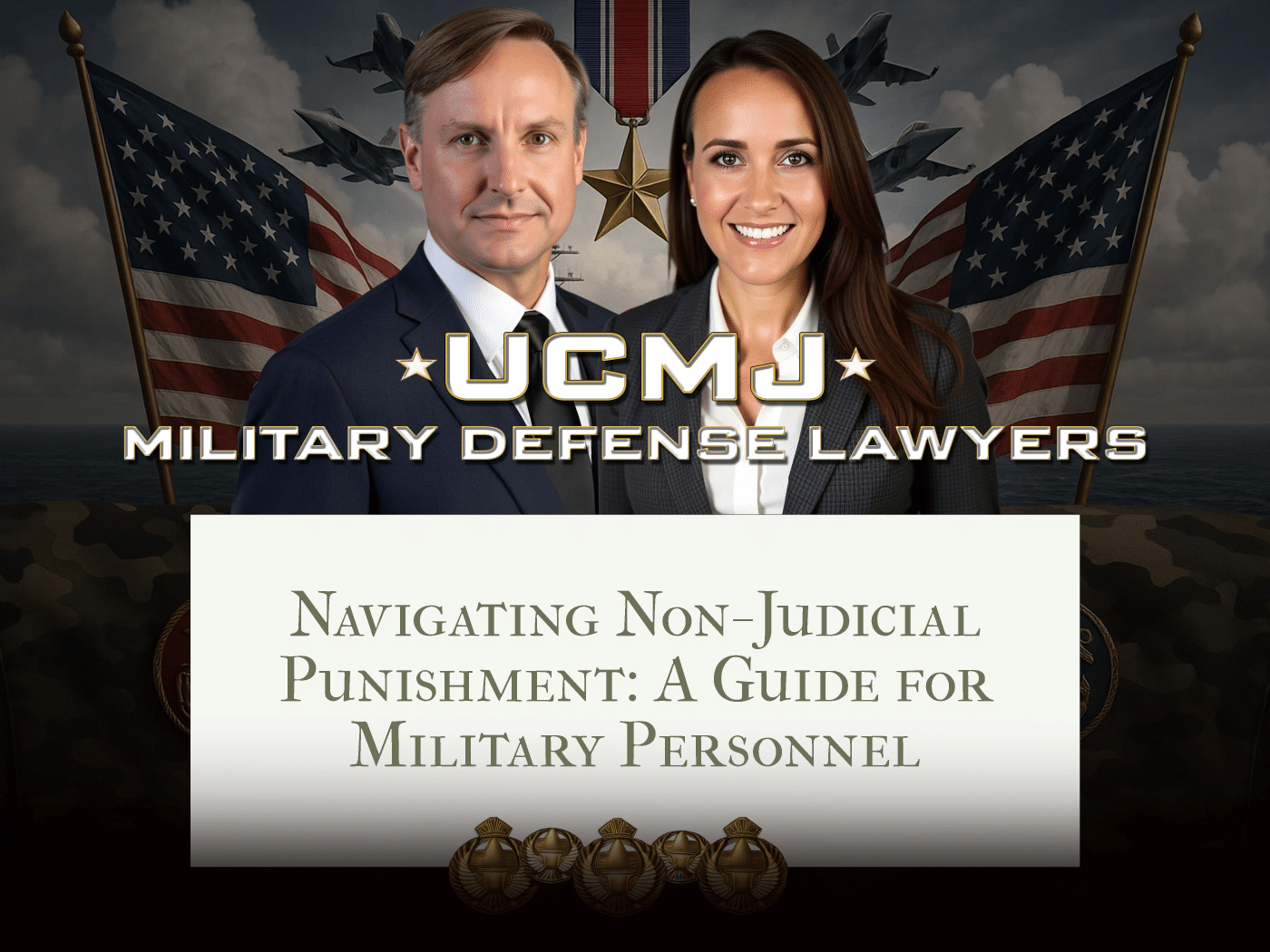Non-Judicial Punishment (NJP) can be a confusing and stressful experience for service members. Often referred to as “Article 15” in the Army and Air Force or “NJP” across other branches, this form of discipline happens outside a court-martial. It is still a serious matter with lasting personal and professional consequences. For those facing NJP, it’s easy to feel overwhelmed, uncertain about your rights, or unsure about how to navigate the process. Understanding what it is, what it involves, and how best to respond can make a substantial difference in your outcome. Many military personnel face NJP for the first time unaware of the long-term effects it can have on their careers, future promotions, or security clearances. Whether you’re under investigation or simply want to be informed, this guide offers clarity and support. With the right knowledge, you can make better decisions and protect what you’ve worked hard to earn in your military career. If you’re dealing with NJP or advising someone who is, this article can serve as a comprehensive starting point.
Getting to Know Non-Judicial Punishment
Non-Judicial Punishment refers to an administrative disciplinary action a commanding officer may take against a service member for minor offenses under the Uniform Code of Military Justice (UCMJ). It is not a criminal trial, but it can result in significant punishments such as reduction in rank, extra duties, pay forfeiture, or restrictions on liberty. The intent behind NJP is to maintain discipline efficiently without involving military courts.
For example, a sailor who misses curfew during a port visit may receive NJP rather than face court-martial. Similarly, a junior airman found guilty of disrespecting a senior noncommissioned officer might be subject to NJP for conduct unbecoming. While these scenarios might seem routine, the results of accepting NJP without understanding its implications can resound throughout a service member’s career. It’s critical to remember that NJP is voluntary—you have the right to refuse NJP and demand a court-martial instead, except in cases involving personnel at sea. Knowing this right gives you a degree of control in how your case proceeds.
Why It’s Important to Understand NJP’s Consequences
Although Non-Judicial Punishment is technically an administrative action, it often carries serious professional and personal consequences. Military careers are built on evaluations, discipline records, and chain of command recommendations. A negative mark from NJP can influence each of these areas significantly. It can also impact morale, personal relationships, and mental health. Understanding NJP equips you with the tools to respond wisely and protect your future.
Even “minor” punishment can delay your career growth, lower your competitiveness among peers, and affect eligibility for specialist training or education opportunities. Furthermore, NJP records may follow you beyond your current command, affecting future commands’ perceptions or complicating transitions to the civilian workforce. Recognizing the long-term effects helps you take NJP seriously and seek sound advice before making decisions.
- A Marine accepts NJP without consulting counsel and is demoted. This demotion postpones eligibility for reenlistment and potential special duty assignments.
- An Army NCO loses rank after being found guilty at NJP for misuse of a government vehicle. Their security clearance review flags the incident, delaying a critical operational assignment.
- An Air Force airman who pled at NJP resigns without contesting the findings. Later, they struggle to find employment due to documentation of misconduct obtained through FOIA by future employers.
A Look at the Process of Non-Judicial Punishment Around the Globe
- Step 1: The commander is notified of an alleged offense and begins an inquiry. Witnesses may be interviewed, and documentation is reviewed.
- Step 2: If the commander believes an offense occurred, the service member is formally advised of the charges, rights, and proposed NJP filing. They will be offered counsel and a chance to respond.
- Step 3: A hearing is held. The service member may present evidence, call witnesses, and argue their side. The commander then decides whether to impose punishment and what form it will take.
Smart Ways to Approach and Handle NJP If It Happens to You
Your Questions About NJP in a Global Military Environment Answered
How Gonzalez & Waddington Helps Service Members Through NJP Cases
Gonzalez & Waddington is a globally recognized law firm representing military personnel in matters such as Non-Judicial Punishment, courts-martial, and administrative hearings. With decades of combined experience in military justice, our attorneys understand how to build effective defense strategies that preserve careers, reputations, and peace of mind. We have represented clients stationed around the world, from Europe to the Pacific. Our team is committed to giving straightforward advice, strong courtroom representation, and guidance through difficult decisions. We treat each client with the care, confidentiality, and professionalism they deserve. If you’re facing NJP or another military legal issue, we provide the experience and advocacy needed to secure the best possible outcome. You don’t have to face it alone.



